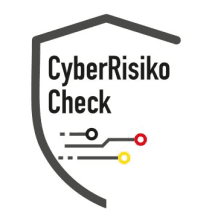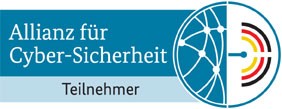Dark Web – A Deep Dive into the Digital Shadow World
The Dark Web is a term that has repeatedly appeared in the media and on the Internet in recent years. It is often portrayed as a mysterious and opaque corner of the Internet that can only be accessed by individuals with special technical knowledge. This article provides a profound insight into the Dark Web, explaining what it is, how it works, and what role it plays in today's digital world. Additionally, central W-questions will be answered that many readers are curious about regarding the Dark Web.
What is the Dark Web?
The Dark Web refers to a part of the Internet that is not indexed by conventional search engines. Unlike the so-called "Surface Web" or "Clear Web," which is the publicly accessible part of the Internet, it requires special software and technologies to access the Dark Web. The most well-known method is using the Tor network, which obscures the identity and location of users. With these anonymizing tools, users' activities are largely kept secret, which presents both opportunities and risks. But what does this mean in concrete terms? The Dark Web hosts websites, forums, and marketplaces that are deliberately hidden from the general public. These places often serve illegal activities, but also political activism and non-governmental organizations wishing to protect themselves from repression.
How does the Dark Web work?
To understand the Dark Web, one must first look at the technology behind anonymization. One of the most important technologies is the Tor network (The Onion Router). When using Tor, users' data packets are distributed over multiple stations (so-called relays) and encrypted multiple times, making it impossible to trace the source and destination of the data. This process is similar to layering an onion, which is why the technique is often referred to as Onion Routing. This multiple encryption guarantees a high degree of security and anonymity for users, which is especially crucial in countries with strong censorship or surveillance.
Another technical aspect is the use of so-called .onion domains. These special Internet addresses are only accessible within the Tor network and offer additional security. This technology creates a closed network, accessible only to individuals who have the appropriate software. Despite this complex technology, the underlying idea remains relatively simple: it’s about protecting the privacy of Internet users and obscuring their digital footprints. However, the balance between data protection and illegal activities is often debated.
Who uses the Dark Web?
The users of the Dark Web come from very diverse backgrounds. On one hand, there are criminals who use it as a platform for illegal activities such as drug trafficking, weapons trade, or selling stolen data. On the other hand, there are political activists, journalists, and individuals from countries with authoritarian regimes seeking secret communication and information exchange. This diversity is one reason why the Dark Web is so often discussed in a dilemma between freedom and crime. The anonymity afforded by the Dark Web makes it both a safe haven and a guaranteed venue for illegal dealings.
An important aspect of the discussion about the Dark Web is the question: Who benefits from this technology? While some view the Dark Web as a refuge for free speech and privacy protection, others warn of the dangers arising from anonymity. For instance, criminals can thrive in an almost safe environment, leading to an increase in cybercrime. The workings of the Dark Web vary greatly depending on users' motivations and objectives; ranging from politically motivated activism to organized cybercrime transactions.
Where is the Dark Web located geographically?
One of the most common questions is: Where is the Dark Web located? Since it is a virtual network made up of encrypted and pseudonymized connections, it is not tied to a physical location. The Dark Web exists decentrally across the entire global Internet. Any user can access it through the Tor network, regardless of their geographical location. This decentralization is both an advantage and a risk. It is beneficial for people living in countries with strict Internet censorship, allowing them to inform themselves through independent channels. At the same time, this characteristic poses a challenge for law enforcement agencies wanting to track illegal activities.
Why does the Dark Web exist?
The existence of the Dark Web is closely tied to the need for privacy and freedom. In a world where surveillance and data misuse are becoming more prevalent, the Dark Web offers a space where users can operate without constant observation. Another reason for the emergence of the Dark Web was the criticism of the established mechanisms of digital communication. Many people find the omnipresent surveillance by governments and corporations threatening. This is where the Dark Web steps in, offering a way to bypass this surveillance through technologies like Tor. This technology is often seen as a free Internet, where free communication without government control is possible.
What opportunities does the Dark Web offer?
Despite the numerous risks associated with the Dark Web, there are also opportunities that must be utilized. On one hand, it provides citizens in repressive regimes the opportunity to communicate freely and anonymously without fearing repression. In this way, the Dark Web becomes an important tool in the fight for freedom of speech and human rights. On the other hand, it serves as a research platform for cybersecurity experts trying to identify and address vulnerabilities in networks. By analyzing the structures of the Dark Web, security gaps can be revealed that are also significant for the conventional Internet. Furthermore, legitimacy and secure communication find their place in specific areas: For example, whistleblowers use the Dark Web as a secure channel to expose wrongdoings without revealing their identity.
What risks are associated with the Dark Web?
The risks of the Dark Web should not be underestimated. The anonymity that prevails here attracts not only activists and data protectors but also criminals. The trade of illegal goods and services often flourishes in these areas without disturbance. There are numerous cases where the Dark Web has served as a platform for distributing drugs, weapons, or fake documents. Law enforcement often faces the challenge of determining the origin and responsible parties of these activities since encryption and the decentralized structure of the network significantly complicate this. Another risk involves the security of one’s data: those who act carelessly can easily fall victim to fraud, phishing attacks, or other cyber intrusions. Moreover, in civic spheres where trust is essential, the shady activities of the Dark Web are often stigmatized, which can adversely affect the reputation of legitimate users.
What role does the Dark Web play in today’s digital landscape?
In the modern digital landscape, the Dark Web occupies an ambivalent role. It is both a symbol of freedom on the Internet and a synonym for the dangers that arise from anonymity and opacity. The development of technologies that enable the Dark Web reflects societal changes concerning data protection and surveillance. While governments and businesses increasingly take measures for monitoring and data storage, decentralized networks like the Dark Web provide a counterpoint that emphasizes privacy and freedom.
What developments can be expected in the Dark Web in the future?
The future of the Dark Web will be significantly influenced by technological and political developments. With the further spread of encryption technologies and the increase in threats in the realm of cybercrime, it remains to be seen whether the Dark Web can establish itself as a permanent entity or if it will be increasingly restricted by stricter regulations and technology-induced barriers. It is conceivable that more measures will be taken in the future to curb the misuse of anonymity services, which could bring the use of the Dark Web for legal purposes more to the forefront. Nevertheless, the demand for privacy and anonymous communication is likely to continue, which would favor the survival of such networks.
How can users protect themselves in the Dark Web?
Safety in the Dark Web is of utmost importance. Users navigating this network should always be aware of the risks and take appropriate protective measures. Besides using tools like the Tor browser, it is important to regularly update software to close security gaps. Additionally, using virtual private networks (VPNs) is advisable to further obscure one’s identity. Critical is also the sharing of personal
Dark Web in Germany: Current Developments
The importance of the dark web in Germany is continuously growing. According to recent studies by the Federal Office for Information Security (BSI), German companies are increasingly affected by cyber threats. The Bitkom Association reports that 84% of German companies have become victims of cyberattacks in the last two years.
Especially in the area of the dark web, the following trends are evident:
Increasing investments in preventive security measures
Heightened awareness for comprehensive security concepts
Integration of the dark web into existing compliance frameworks
EU Compliance and Dark Web
With the introduction of the NIS2 Directive and tightened GDPR requirements, German companies must adapt their security strategies. The Dark Web plays a central role in fulfilling regulatory requirements.
Important compliance aspects:
Documentation of security measures
Regular review and updating
Proof of effectiveness to supervisory authorities
Practical Implementation in Corporate Daily Life
The integration of the dark web into corporate daily life requires a structured approach. Experience shows that companies benefit from a gradual implementation that considers both technical and organizational aspects.
Think of the dark web as insurance for your company: the better prepared you are, the lower the risk of damage from security incidents.
Further Security Measures
For a comprehensive security strategy, you should combine the dark web with other security measures:
Vulnerability Management - Systematic vulnerability management
Penetration Testing - Comprehensive security tests
Security Hardening - Employee awareness training
Incident Response Plan - Preparation for security incidents
Conclusion and Next Steps
The Dark Web is an essential component of modern cybersecurity. Investing in professional dark web measures pays off in the long run through increased security and compliance conformity.
Want to optimize your security strategy? Our experts are happy to assist you in implementing the dark web and other security measures. Contact us for a free initial consultation.
🔒 Act now: Have our experts evaluate your current security situation
📞 Request Consultation: Schedule a free initial consultation on the dark web
📋 Compliance Check: Review your current compliance situation
📌 Related Topics: Cybersecurity, IT security, compliance management, risk assessment




